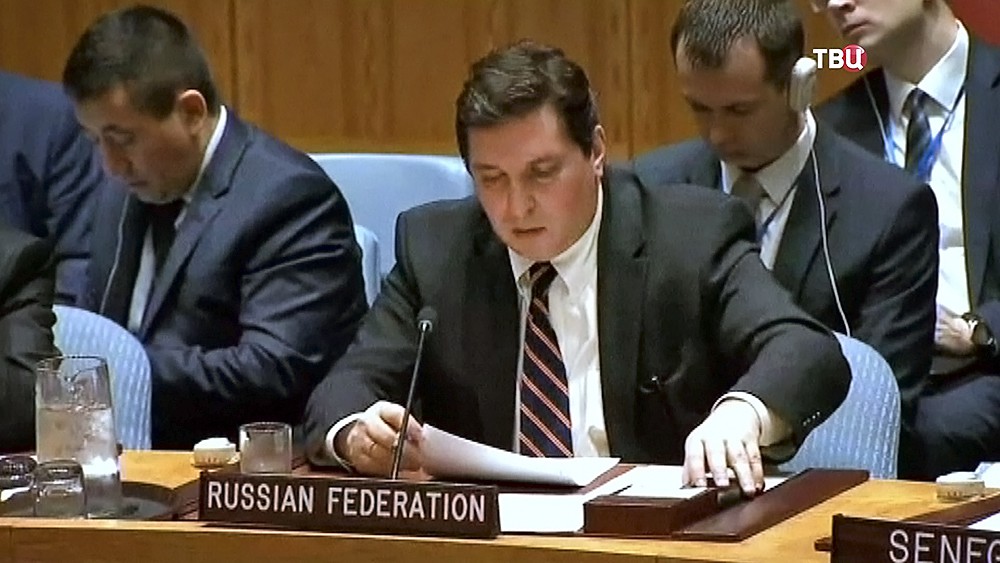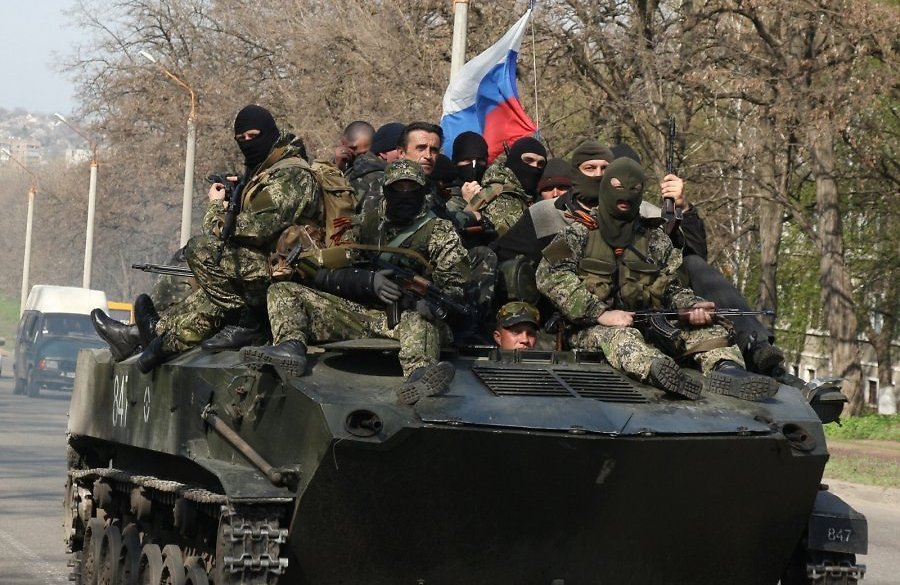From making world leaders wait for meetings to mafia-like language from its leaders and diplomats to flouting international law by invading and occupying neighboring countries, Russia’s national strategy under Vladimir Putin is based on behaving so badly that others don’t seem to know how to react.
On the one hand, as many sympathetic observers have noted, Russia is suffering from the loss of empire and behaving in ways that recall but in fact are far worse than most other modern states that have lost their former possessions. And on the other, Putin has discovered that in Russia and the West such outrageousness works to his benefit both at home and abroad.
The latest display of the Russian approach came this week in the UN Security Council where Russia’s deputy permanent representative Vladimir Safronkov used extremely undiplomatic language to condemn other members of that body and then the Kremlin came to his defense saying that his behavior was entirely normal (themoscowtimes.com and znak.com).
Many commentators were appalled by Safronkov’s behavior comparing it to Nikita Khrushchev’s pounding of his shoe at the UN more than half a century ago (e.g., gordonua.com, gordonua.com and gordonua.com).
But there have been three especially thoughtful reflections about what Safronkov’s words say about Putin’s approach to the world, why many in the West find it so hard to cope with such behavior, and how the only responses that do appear to work are very much at odds with how Western governments do business.
On Facebook, Russian commentator Igor Eidman draws a sharp contrast between what Khrushchev did so long ago and Safronkov’s antics. Khrushchev acted as he did for “completely sincere” motives, he says. “He thought that was how one had to speak with ‘class enemies.’”
“In contemporary Russian policy,” however, Eidman continues, “everything is a bluff and a lie.” Even what Safronkov did was “a rehearsed spectacle,” one organized because “the Putin powers that be in this way want simultaneously to frighten the world with their inadequacy and look tough before the Russian public.”
Anyone who doubts this, the commentator says, should remember that the Russian representative wasn’t ad libbing: he spoke from a prepared text.
Safronkov on Putin’s behalf is doing the same thing, albeit at a higher level to convince the West it has no choice but to give in.
The second such commentary by US-based Russian historian Irina Pavlova, argues that Safronkov’s bandit-like speech shows the emergence of “a new historical reality” which many in the West have been unwilling to face up to let alone challenge in any effective way.
And the actions the West has taken, Pavlova suggests, “are not horrifying to the Putin regime: they only strengthen it in the eyes of his own population.”
The West and above all the US must come up with a response to stand up to this challenge by peaceful means, she continues, because the Kremlin could easily respond by using nuclear weapons if it was challenged militarily. “Therefore, the reponse must be intelligent, targeted and unexpected.”
And this response must forever strip Moscow of the possibility of playing on human ignorance with lies and disinformation and promote a new generation of Russian leaders who are committed to integration with rather than the destruction of the globalized world, Pavlova concludes.
The third commentary on this issue is by Igor Yakovenko who addresses why, given Putin’s approach, the response of Donald Trump is likely to be more effective than that of Barack Obama, although it will entail consequences for the US and the West that many will find uncomfortable.
According to Yakovenko, “Obama is a good man and a professional politician. Trump in general is neither … But against Putin, Obama could do nothing. Putin while Obama was in office did whatever he wanted … [because] contemporary diplomacy with its careful weaving of agreements and searches for compromises is powerless.”
It is not yet completely clear, the Russian commentator says, “what Trump will be able to do, but for now he is going along the right course,” challenging Putin with simple questions that the Kremlin leader cannot answer easily such as “do you want to be with Assad, Hezbollah, and Iran or with the US, Europe, Japan, Israel and Australia?”
That doesn’t mean, Yakovenko says, that such simple and direct statements will get Russia out of Syria or Crimea, but it is preferable to sending a signal that one is prepared to compromise because Putin and the Russians view that as “a display of weakness and the occasion for further aggression.”
The West needs to recognize that “it is impossible to reach an agreement with Putin,” but “it can and must deprive him of room for maneuver by narrowing the political space” in which he can function. For this, the Russian commentator says, “simple diplomacy” of the kind Trump has displaced is the most suitable.
Related:
- Ukraine and the US-Russia confrontation
- West’s failure to confront Putin on Olympics convinced him he could invade Ukraine without penalty, Titov says
- “Successor” — a new novel on Russian espionage in USA focuses on Russo-Ukrainian war
- Russia is getting rid of inconvenient witnesses for The Hague — Mark Feigin
- ‘There are no liberals in Putin’s Kremlin,’ Barbashin and Inozemtsev say
- Putin leading Russia ever more rapidly to fascism and the world to war, Israeli analyst says
- The West didn’t ‘betray’ Russia: Russia betrayed its best self









